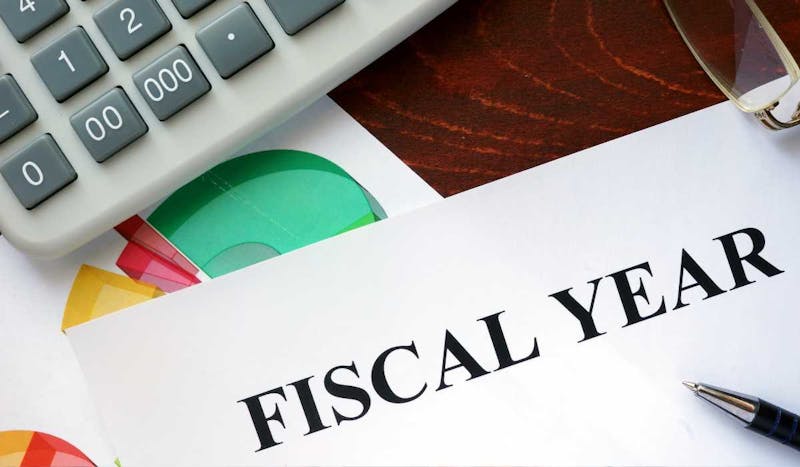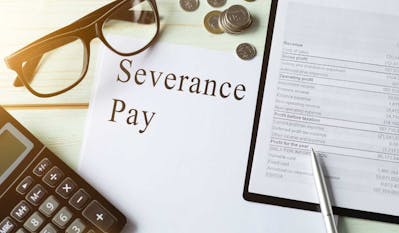A fiscal year is a 12-month period used for financial management, including preparing financial statements and tracking financial health.
Unlike the calendar year, a fiscal year in Hong Kong can start on any date and lasts 12 months.
Businesses in Hong Kong have the flexibility to choose their own fiscal year-end date, which can differ from the government’s fiscal year.
Consider aligning with the government’s fiscal year for convenience or choosing a date based on the business cycle and operational needs.
Companies can change their fiscal year-end with approval from directors (and possibly shareholders for public companies).
A fiscal year is a specific 12-month period that businesses and governments use to manage their finances.
This includes tasks like preparing financial statements and keeping track of their financial health.
A fiscal period is not the same as the calendar year (January 1 to December 31). In Hong Kong, it can start on any date and last 12 months.
This flexibility helps businesses align their financial reporting with their unique operational cycles.
Why is Understanding the Fiscal Year Important in Hong Kong?
Companies use the fiscal year to create financial reports, track earnings and losses, and plan budgets.
It sets deadlines for tax filings and audits.
Choosing the right financial year-end date can simplify accounting.
For example, a store might end its fiscal year in June to avoid the busy holiday season when checking accounts.
For Individuals
When looking at a company's finances, knowing their fiscal year helps assess their performance accurately.
Understanding a company's fiscal year can be important for business agreements and investments.
Knowing about fiscal years helps businesses in Hong Kong manage their finances better, meet tax requirements on time, and make intelligent decisions based on current financial data.
For individuals, it provides a clearer picture of a company’s financial health, aiding in better investment and business decisions.
What is Hong Kong's Fiscal Year?
Hong Kong operates on a fiscal year that differs from the standard calendar year.
The Hong Kong government's fiscal year runs from April 1st to March 31st of the following year.
This setup means all government financial records and reporting follow this same year-end date (12-month cycle).
Importantly, companies operating in Hong Kong have the flexibility to choose their own accounting year-end date, independent of the government's fiscal year.
While aligning with the government's cycle (April 1st - March 31st) can ease tax obligations, companies can choose a different end date that suits their business needs better.
Benefits of This Structure
Hong Kong's fiscal year aligns well with its economic trends.
April often marks the beginning of a new quarter with increased economic activity compared to the slower period leading up to the Lunar New Year celebrations.
This structure provides a clearer picture of financial performance throughout the year.
Although not universally adopted, April 1st is a common starting point for fiscal years in some other countries and regions.
This consistency can simplify international business transactions and financial comparisons.
What is the Importance of Fiscal Year for Businesses and Individuals?
Understanding the fiscal year is important for businesses and individuals in Hong Kong. The fiscal year influences tax filing deadlines, financial reporting, and strategic planning, impacting how businesses operate and how individuals manage their finances.
For Businesses
Tax Filing Deadline
- Businesses in Hong Kong must submit their Profits Tax Return (PTR) to the Inland Revenue Department (IRD) within one month of their fiscal year-end.
- This deadline is based on when the company’s books are closed, which is tied to their fiscal year-end.
- Picking a strategic fiscal year-end can help manage the tax filing workload better.
Note that while appointing a tax representative can simplify tax filing, it is not mandatory for Profits Tax Return filing.
The Inland Revenue Department offers a Block Extension Scheme that companies can utilize to request an extension for filing their profit tax return, regardless of having a tax representative.
Bookkeeping and Financial Reporting
- The fiscal year sets the company's bookkeeping and financial report preparation period.
- Companies must keep detailed records of income, expenses, and other financial activities for the entire fiscal year.
- According to the Hong Kong Companies Ordinance (Cap. 622), companies incorporated in Hong Kong must prepare and maintain proper accounting records and meet statutory audit requirements every year.
- These records are used to create financial reports showing the company's performance over that period.
Business Cycle Alignment
- Aligning the fiscal year-end with the business’s natural cycle can be beneficial.
- Choosing a year-end during a low activity period or after major projects can simplify accounting.
- For example, a Hong Kong company might pick a June 30th fiscal year-end to avoid the busy holiday season, making it easier to manage their accounts.
- Analyzing financial data aligned with the business cycle can provide valuable insights into efficiency and profitability.
For Individuals
Salary Tax Filing
- Individual salary tax filing deadlines in Hong Kong are linked to the government’s fiscal year (April 1st to March 31st).
- Individuals must report all income earned during this period, regardless of when they received it.
- For example, an income earned in March 2024 would be reported for the fiscal year ending March 31st, 2024.
Tax Implications of Income
- The timing of income within the fiscal year can affect an individual’s tax situation.
- Hong Kong has a progressive tax system, where higher income levels are taxed at higher rates, but only the income above each threshold is taxed more.
- Receiving a bonus near the fiscal year-end (like in March) might push someone into a higher tax bracket, but only the amount over the threshold will be taxed at a higher rate.
Understanding how income timing interacts with the fiscal year can help individuals make better financial decisions and possibly reduce their tax burden.
Choosing Your Fiscal Year
When setting up your company’s financial reporting schedule in Hong Kong, one important decision is choosing your fiscal year-end date.
This choice can impact your tax filing process, financial reporting, and overall business strategy.
It's important to note that a company's first financial year begins on the date it is incorporated and ends on a date chosen by the directors that fall within 18 months of the incorporation date.
Fiscal Year vs. Accounting Year
In Hong Kong, the terms “fiscal year” and “accounting year” are often used interchangeably, but they have subtle differences:
Fiscal Year
This is a general term for a 12-month period used for financial reporting. It applies to both government and business financial cycles.
In Hong Kong, the government’s fiscal year runs from April 1st to March 31st.
Accounting Year
This term refers specifically to the 12-month period that a business chooses for its own internal accounting and financial reporting.
While many businesses in Hong Kong choose a fiscal year-end that matches the government’s cycle (April 1st to March 31st), businesses can select a different accounting year-end based on their needs.
Factors to Consider When Choosing an Accounting Year
Hong Kong allows businesses flexibility in choosing their accounting year-end. Here are some factors to think about to make the best choice for financial reporting and tax filing:
Business Cycle Alignment
Aligning your fiscal year-end with your natural business cycle can be beneficial.
This means picking a year-end during a quieter period or after major projects to make bookkeeping more manageable and get a clearer view of financial performance.
Tax Filing Convenience
Aligning your fiscal year-end with the government’s fiscal year (April 1st to March 31st) can simplify tax filing because you won’t need to adjust your accounting records.
However, if your business's natural year-end is different from the government’s cycle, it might be better to choose a year-end that fits your business cycle rather than just matching the government’s dates.
Subsidiary Considerations
If you have subsidiaries in other countries or regions, aligning your fiscal year-end with your parent company’s year-end might be easier.
This helps streamline financial reporting and gives a clearer picture of the entire group’s financial performance.
Audit Costs
Think about how your choice of year-end might affect audit costs. Some auditors offer discounts during their off-peak periods, so aligning your year-end with these times could save you money.
Can a Company in Hong Kong Change Its Fiscal Year-End Date?
A company in Hong Kong can change its fiscal year-end date, but there are some key points to keep in mind.
Usually, directors need to approve the change. Depending on the situation, shareholders might also need to approve it for public companies or those limited by guarantee.
While not strictly necessary, having a good reason for the change helps your application. Examples include aligning with industry standards, matching a subsidiary's fiscal year, or making accounting easier.
To maintain consistency in reporting, the first financial period after the change must be no longer than 18 months.
Generally, you have to wait 5 years after making a change before you can do it again unless you're aligning with a holding company's fiscal year-end. However, some situations, like mergers or acquisitions, might allow for earlier changes.
Ready to Take Flight With Your Finances?
Understanding the fiscal year in Hong Kong is important for businesses.
You can choose a fiscal year-end that optimizes your financial operations by carefully considering factors like your business cycles and potential audit costs.
In addition to company registration, Air Corporate also provides financial services to help businesses in Hong Kong grow.
From bookkeeping and tax filing, our team of experts can guide you through every step.
Contact Air Corporate today and let us help with your business!







